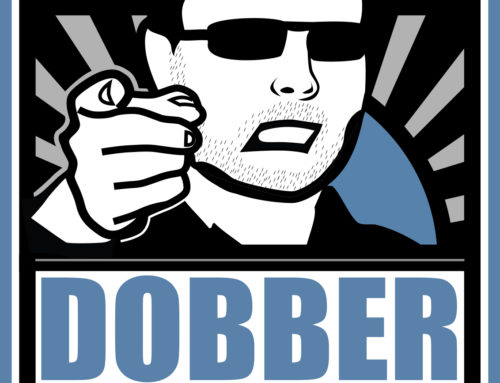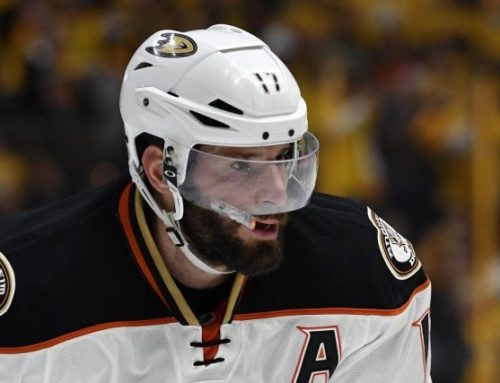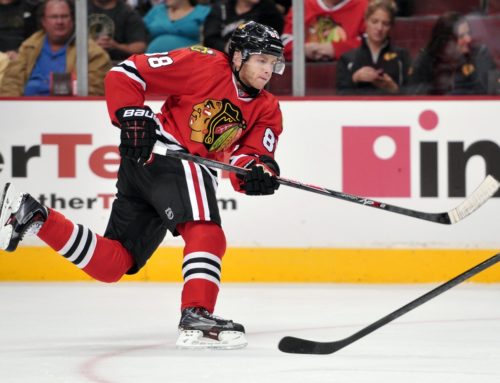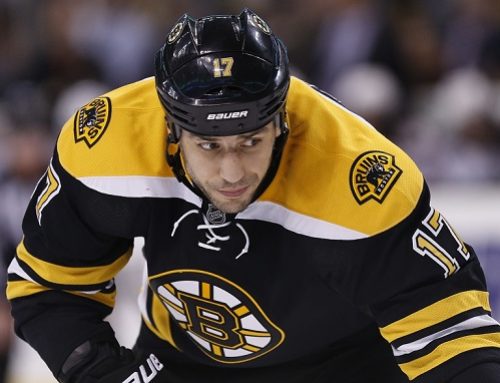Deconstructing Demeanor
Justin Goldman
2011-04-18

Even though the regular season is over, whatever you do, don't shut off your fantasy radar. The chance to uncover some quality goalie intel is deceptively high. In fact, you can a better feel for a goaltender's true fabric and long-term value during the playoffs than at any other point during the regular season.
This is especially true for the three rookies currently battling in the first round – Corey Crawford, Michal Neuvirth and Sergei Bobrovsky. Why? Because we get to see how they perform under more pressure and against more urgent and determined opponents.
I define pressure in the playoffs as the ability to play in an unfamiliar situation where losing is simply not an option. Playing well under pressure is also a truer display of one's mental toughness. We can't see it during the regular season like we can see technique and style, so this type of intel is extremely valuable to you as a manager.
What have I learned from the first 18 games of the Stanley Cup Playoffs? The importance of understanding a goalie's demeanor. This element of their mental game bridges the gap between two worlds – the visible and invisible. You can't readily see a goalie's state of mind, but their confidence, rhythm, focus, attentiveness and work ethic all have visible results.
In that regard, realize that demeanor is really deceptive. Defined as "behavior towards others in an outward manner," demeanor is difficult to dissect when a goalie is wearing 40 pounds of pads and a bulletproof mask covering their face. But don't let that disparage you from trying.
Why do you think I've been calling Neuvirth The Great Deceiver for almost two years? When he moves, his demeanor leads people to believe he's too casual, inattentive or passive. Yet this couldn't be further from the truth. He's just an economical, minimalistic goalie that only moves when he absolutely has to. So even though he has stellar reflexes and reaction speeds, he's smart enough to rely on his solid positioning instead.
Demeanor is also deceptive because it changes at varying rates. During a game, the numerous shifts in momentum can cause a goalie to go from displaying a relaxed to a tense demeanor in just a few shots or shifts. Goals against, big saves or even the play of the opposing goalie will have an impact on demeanor.
To be honest, there are an infinite number of environmental, internal and external influences applying pressure on a goalie. How many moments or elements can you find during the course of a playoff game?
Demeanor can also slowly shift and evolve over a much longer period of time. Some goalies take a few years for their demeanor to appear more poised, confident and in control. Others only need a few months to adjust. How has Pekka Rinne calmed down since last year's playoff run? What has this year's lighter workload done to Roberto Luongo?
No matter what speed or rate demeanor changes, when it comes to observing a goalie with a quality state of mind, the ability to remain steadfast with their natural demeanor is the biggest key. It's not only a sign of steady confidence, but of high maturity as well. It's a stark difference to a goaltender that sees their confidence and poise sway to different levels on a more continual basis. Consistent demeanor, in my opinion, leads to consistent play.
After three playoff games, this proves to me just how valuable goalies like Neuvirth and Carey Price are long-term. Their demeanor has not changed a single bit since the playoffs began. And no matter what's going on around them, they appear and execute exactly the same. They are the epitome of an even-keeled athlete. Pressure does not faze them at all.
Aside from Price, Neuvirth has impressed me more than any other playoff goaltender so far. And to think, he's only 23 years old. It's exciting and fun to watch. I not only saw this coming years ago, but I knew that his demeanor, when compared to Semyon Varlamov's, would lead him to play more games and become the Caps' starter in the playoffs.
Overall, your ability to understand and comprehend a goalie's true demeanor will make it that much easier to figure out what their fantasy value might be in the future.
So do yourself a huge favor and keep those radars beeping through the playoffs. Learn how to read a goalie's body language when they are facing extreme pressure. Watch for post-goal reactions. See if they rely more on reflexes or positioning. Know when they are displaying or lacking signs of confidence, tension or comfortableness.
My ability to read Neuvirth's demeanor years ago made it very easy for me to decipher his fantasy value for Dobber Nation. And it's the same with hundreds of other goaltenders. It's not rocket science and I don't have any special powers.
I simply understand the importance of a goaltender's body language and mental toughness.
NAMES TO KNOW
Every week during the off-season, I'll drop a handful of prospects that you'll want to become familiar with as time goes on. These goalies could be juniors, European prospects or minor league netminders with the ability to surprise everyone. It is bound to happen at least two or three times a year. A James Reimer, an Anders Lindback, a Jon Quick – goalies nobody expected to steal jobs, much less maintain them, will come around sooner than you think.
MAGNUS HELLBERG – I added Magnus to my Top-100 Prospects Rankings a few months ago when he stole the starting role in Almtuna (Allsvenskan). Hellberg had such a strong second half to the season (finished with 31 wins, a 2.06 GAA and .934 save percentage) that he is now ranked #2 for draft-eligible international goalies by NHL Central Scouting. He's quick for a lanky 6-foot-5 goalie, a fierce competitor and now signed to play with Frolunda in the SEL for the next two years. I won't be surprised if Nashville takes a good look at him in the NHL Entry Draft this summer.
AARON DELL – I never dabble in rumors, but David Marcoux, who was the former goalie coach for the Calgary Flames, tweeted late Sunday night that Montreal offered the Fighting Sioux sophomore superstar a two-year contract. I don't believe it until Montreal makes it official, but Dell would develop nicely with Pierre Groulx, who has clearly done wonders with Price. Dell has quality upside and has been on my Top-100 Prospects Rankings for a few months now. He could still return to North Dakota for his junior season, but that doesn’t take away from his long-term value.
DAVID HONZIK – For his age, what he has accomplished this season with Victoriaville is sensational. Just get used to hearing his name, it will become "household" soon enough. At 17 years old, the 6-foot-3, 194 pound Honzik never had any serious goalie training before this year, so keep in mind he is still a very raw-skilled goaltender. But if you watch him play, you will see a large-framed goalie with a great presence in the net. He's definitely a long-term keeper with a lot of potential. He has an extremely quick glove hand for his size and could be refined into a quality pro talent.
MARK OWUYA – The unconventional, aggressive, 6-foot-2 Stockholm native posted the best save percentage (.927) in the Swedish Elite League this year. At age 21, he's not technically sound at all, but he gets the job done and has the type of work ethic and attitude coaches love. He posted a 1.66 goals-against average and .934 save percentage in seven playoff games and elevated his play when it mattered most for Djurgarden. He's being scouted by a number of NHL teams, so don't be surprised to hear rumors about the Toronto Maple Leafs going after him.





 EDM
EDM FLA
FLA BUF
BUF DAL
DAL MIN
MIN UTA
UTA NSH
NSH VAN
VAN OTT
OTT
